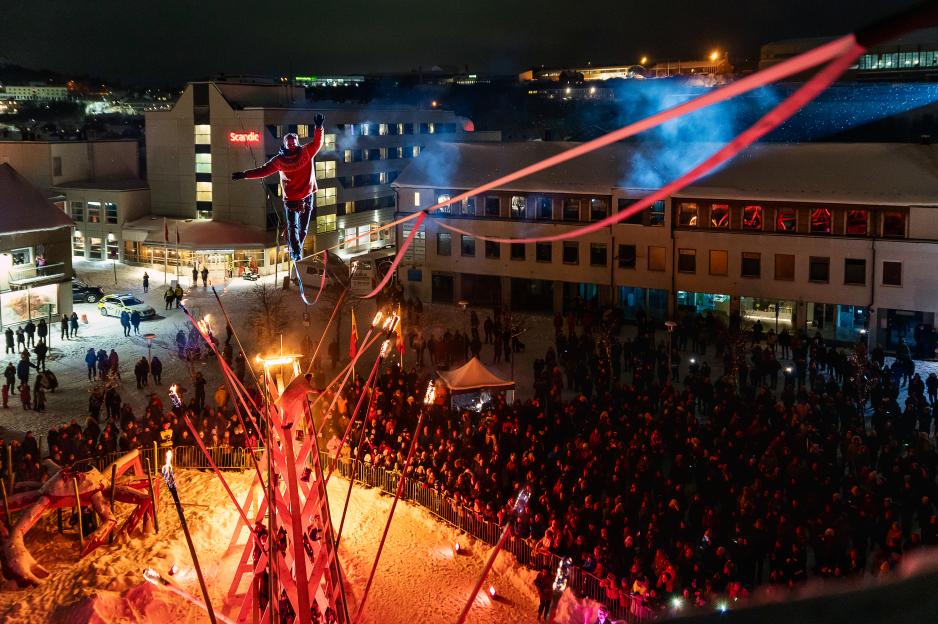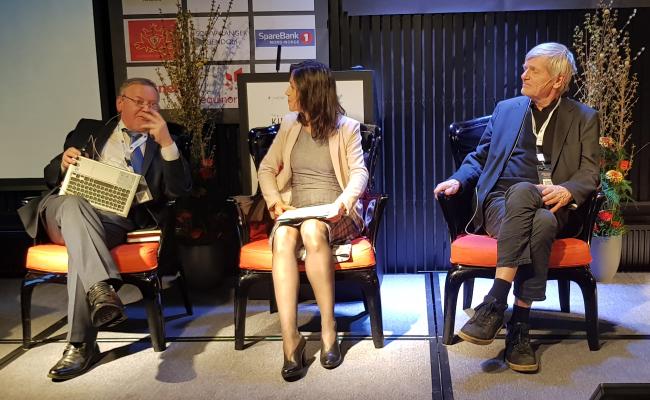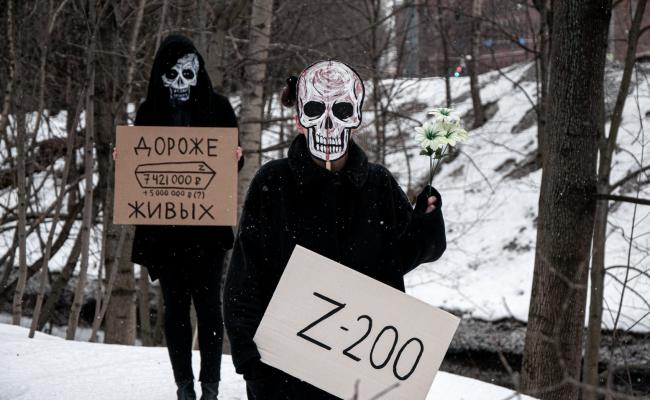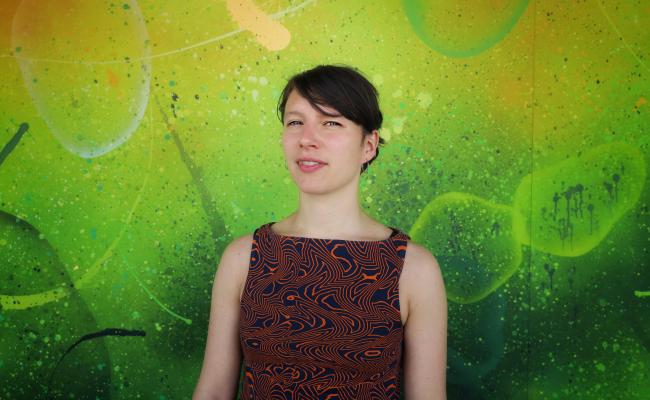
Photo gallery: The peace marking was organized by the Ukrainian Association in Norway, here represented by Mykhailo Kozachenko. He emphasized that the Ukrainian people have waged a demanding struggle for freedom for 365 days and thanked those present for their support. (Photo: Astri Edvardsen) >

Ivan from Moscow was among those who held appeals. In Russian, he called for an end to the war in Ukraine and the removal of the current regime in Russia. Organizer Kozachenko thanked him for his words. Appeals were also held by a young Ukrainian woman and local politicians (Photo: Astri Edvardsen) >

Many in Kirkenes turned up to protest the war and show solidarity with Ukraine. (Photo: Astri Edvardsen)










